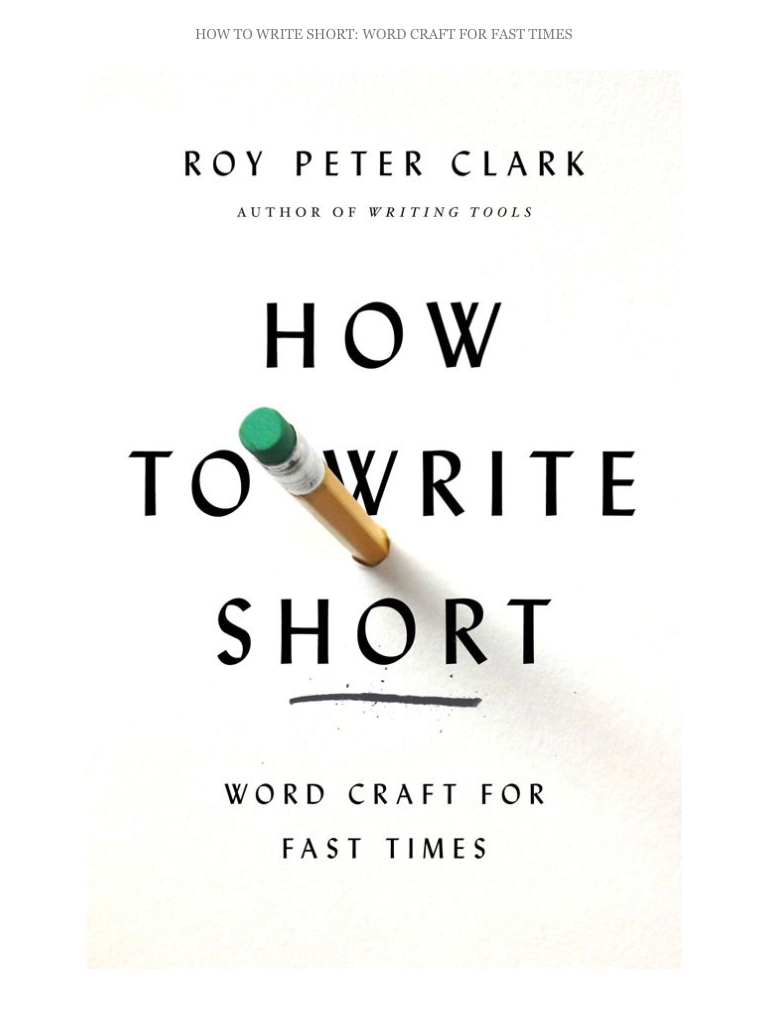Reading How to Write Short by Roy Peter Clark (Kindle here) gave me stage fright. Or, I suppose, blog fright. How could I live up to his excellent examples? Lucky for me, he includes clear advice on how to sharpen short writing, and I’m happy to follow it. Most everyday writing is 300 words or less–unless your job is, well, a writer. We text and tweet and email a lot more than we write novels. (Even those who write novels, I bet.)
Short writing is often overlooked for its novel-length counterpart. After all, tweets don’t win Nobel Prizes–at least, not yet. But short writing has value. And an aspiring writer can learn from every kind of writing, Clark says. Like the back of cereal boxes, or OKCupid profiles, or–my fave–fortune cookies.
For those quick to say texting, tweeting, and other short writing is ruining our language, we went through this recently with telegrams and turned out ok. People were charged by the word, so abbreviations and crafty cutting were the norm. And now we’re doing it again–but digitally in tweets and emails. (I used to scoff, but now I’ve embraced abbreviations. They can be useful, especially in a tweet, and they can also be sort of hilar.)
Some short writing is both storytelling and communication. After all, letters tell a story. Clark says early novels used letters to tell important parts of the tale. I just finished Where’d You Go Bernadette, composed almost entirely in messages–updated with emails and faxes, of course. Our current family book club book House of Leaves is made up of documents and journal entries. These long stories are told through short writing, just like much of our own life.
My friends and I have an ongoing group text. That communication, made up of bursts of texts, abbreviations and inside jokes, tells a beautiful story. Clark’s more serious example is of mom and daughter texting during a shooting. Those texts kept a family in touch, helped a girl stay safe, and later told a story to us with much more directness and immediacy than 30,000 of the killer’s own words from his manifesto.
Clark also talks about the newsworthiness of Twitter. Short, to the point, continuous updates can place us directly in a story. His example comes from tweets on the ground after an earthquake. An example in my own life comes from Hurricane Sandy. I learned so much more about what neighborhoods were safe and where damage occurred than I could have from more traditional (and longer) news sources. Tweets like “just saw the lights go out on Water St.” (a made up example based on a real event) are just a few words long but communicate critical information.
You don’t need a lot of words to create a powerful piece of writing. In fact there’s a genre of stories only six words long. You may remember Hemingway’s “For sale: baby shoes, never worn,” which I love not only for its emotional impact but also its clever use of punctuation. Larry Smith, editor and publisher of SMITH Magazine and founder of Six-Word Memoirs, championed these short stories. I think mine would be “Girl with plan finds new adventure.” (A close second was “Left-handed editor who writes alright.”)
To me, the why of writing matters much more than the length. Long or short–and long writing sprouts from short writing after all–good storytelling matters. Communication matters. Ideas matter. And all can be told with just a few words.

Thank you for these generous words about my book. And cheers to you for your devotion to the craft. — Roy Peter Clark
Thank you! I loved the book. Thanks for reading!
I stopped using okc a few weeks ago after one too many awkward dates lol. My coworker showed me cliqie.com and I’m a big fan of that over the others in terms of actually meeting people vs. just entertainment. It has a different approach that feels less sketchy cause you and your friends essentially act as “wingmen”. I like that it helps you find things to do too. Skout’s okay too, but still has it’s fair share of creepers